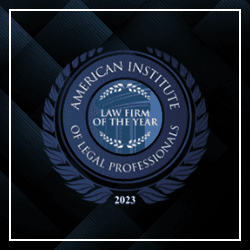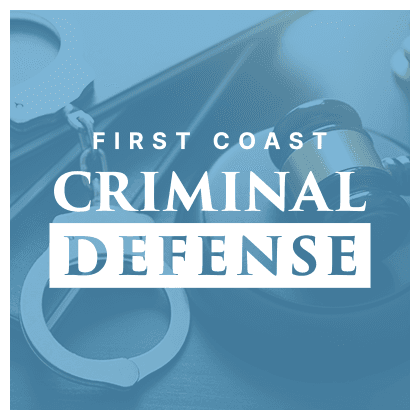
Jacksonville Felony Defense Lawyers
Legal Representation for Severe Criminal Allegations
Felonies are the most serious crimes individuals can be charged with. They include major offenses such as murder, kidnapping, burglary, and aggravated assault and battery. Because they are so severe, they carry harsh penalties.
At First Coast Criminal Defense, our Jacksonville felony defense attorney has extensive experience helping clients fight serious charges.
Our team gets to know the people we serve, building solid and trusting relationships with them. We take the time to fully investigate the alleged incident and explore all available legal avenues. Our approach allows us to develop personalized and robust legal strategies for our clients.
To discuss your case with our felony defense lawyer in Jacksonville, please call us at (904) 474-3115 or contact us online today.
Common Felony Offenses in Florida
Felonies are more serious crimes than misdemeanors. They include substantially dangerous or risky conduct that puts the lives and safety of others and the community at risk.
Common types of felony offenses in Florida include:
- Murder
- Kidnapping
- Human trafficking
- DUI manslaughter
- DUI with serious bodily injury
- Aggravated assault
- Aggravated battery
- Drug trafficking
- Armed robbery
- Sexual battery
- Child pornography offenses
- Lewd or lascivious offenses
- Solicitation of a minor
- Burglary
- Grand theft
- Embezzlement
- Money laundering
- Aggravated domestic violence
At First Coast Criminal Defense, we’ll explain the charge you’re facing and your options for challenging the accusations. By providing honest and clear information, we can assist in making informed decisions about how to proceed with your case.
The Penalties for Felonies in Florida
Florida separates felonies into five categories based on the acts involved. Generally, felonies are punishable by incarceration and/or fines. The term of imprisonment and the amount of the fine are based on the category of the offense.
Examples of potential felony penalties include the following:
- Capital felony:
- Death or life imprisonment without parole
- Life felony:
- Imprisonment for 25 years to life with probation for the rest of the person’s life
- A fine not to exceed $15,000
- First-degree felony:
- Not more than 30 years’ imprisonment
- A fine not to exceed $10,000
- Second-degree felony:
- Not more than 15 years’ imprisonment
- A fine not to exceed $10,000
- Third-degree felony:
- Not more than 5 years’ imprisonment
- A fine not to exceed $5,000
Punishments other than those listed above may also be imposed. Additionally, when a person is convicted of a felony, they can face various collateral consequences – those arising from laws, rules, and regulations. For instance, an individual may lose their gun rights, be denied state licensure, or have trouble getting a job or a place to live.
The Statute of Limitations for Felonies in Florida
The statute of limitations lists the time the prosecutor has to bring a case against a person accused of a crime. For felonies, the deadline varies according to the category of the offense.
Action must be commenced as follows:
- Any time for a capital or life felony
- 4 years after a first-degree offense was committed
- 3 years after a second- or third-degree offense was committed
The court could dismiss the case if the prosecutor does not file charges within the deadline.
Contact First Coast Criminal Defense Today
Our Jacksonville felony defense attorneys recognize the long-term repercussions of a conviction. We purposely take on a small caseload, allowing us to dedicate the time and effort necessary to fight to protect our clients’ rights and futures.
For a complimentary case evaluation, please contact us at (904) 474-3115.
Our FAQ
Have questions? We are here to help.
-
What should I do if I’m under investigation for a felony?
You should remain silent and avoid speaking to law enforcement or investigators without an attorney present. Anything you say can be used against you. A felony defense lawyer at First Coast Criminal Defense can protect your rights and guide you through the investigation.
-
Do I need a lawyer even if I haven’t been charged yet?
Yes, hiring a lawyer early in the investigation process is crucial. A lawyer can help you avoid making mistakes that could harm your case and may be able to negotiate with prosecutors or law enforcement to prevent formal charges from being filed.
-
Can I be released on bail if I’m charged with a felony?
In many cases, yes. The judge will determine whether you are eligible for bail based on the severity of the charges, your criminal history, and whether you pose a flight risk or a danger to the community. Some serious felonies, such as capital offenses, may not be eligible for bail.
-
What is a plea bargain, and should I accept one?
A plea bargain is an agreement between the defendant and the prosecutor, where the defendant pleads guilty to a lesser charge in exchange for a lighter sentence or the dismissal of other charges. Whether to accept a plea bargain depends on the specifics of your case, and your attorney will advise you on the best course of action.
-
Will I have a criminal record if I’m convicted of a felony?
Yes, a felony conviction will result in a permanent criminal record, which can impact employment, housing, and other areas of your life. In some cases, it may be possible to seal or expunge certain charges, but felonies are generally more difficult to remove.
-
Can a felony charge be reduced to a misdemeanor?
It’s possible for felony charges to be reduced to misdemeanors through negotiation or if the evidence in your case weakens. An experienced lawyer can work to reduce the charges and minimize the penalties you face.
-
What if I already have a prior felony conviction?
If you have prior felony convictions, you may face enhanced penalties, including longer prison sentences under Florida’s habitual offender laws. Multiple convictions can also affect parole eligibility and probation terms.
-
What is the difference between state and federal felony charges?
State felony charges involve violations of Florida state laws, while federal felony charges involve violations of federal laws and are prosecuted by federal authorities. Federal cases usually carry harsher penalties and are prosecuted in federal court.
-
Can I appeal a felony conviction if I’m found guilty?
Yes, you can appeal a felony conviction if there are grounds to believe there were legal errors in your trial, such as improper evidence being used, jury misconduct, or ineffective counsel. Your attorney will advise you on the chances of success for an appeal.
-
What are the long-term consequences of a felony conviction?
A felony conviction can lead to loss of civil rights (e.g., the right to vote or own firearms), difficulty finding employment, loss of professional licenses, challenges securing housing, and damage to your reputation.
















